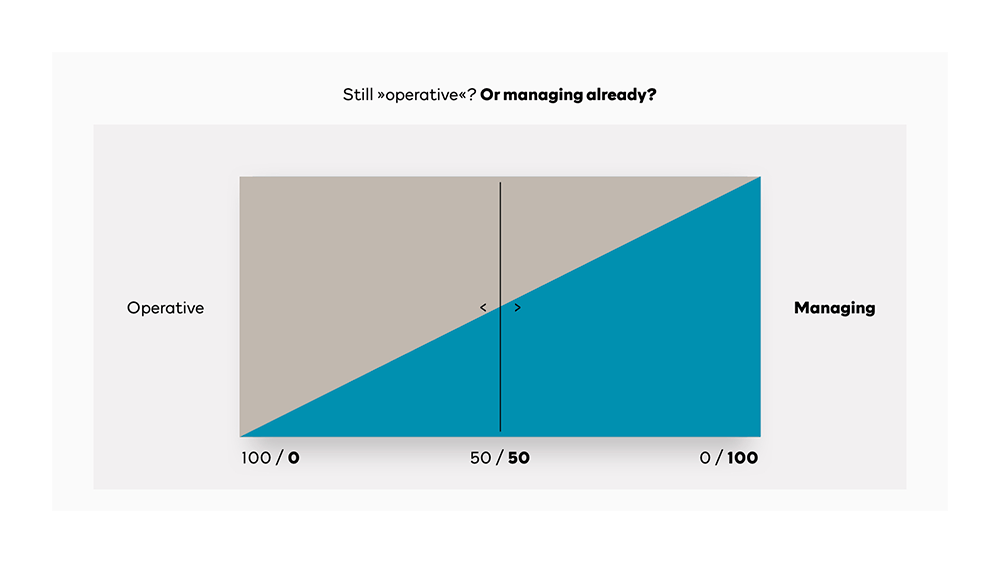Home. » Growing better. » New Growth by New Acting. » More. By less.
New Growth. By new Thinking.
More.
by less!
Now whaattt? Kind of alchemy, of all places? Gold from lead, glory from leisure? ‘Course not. But then: Yes! People changing from operative tasks to management tasks (»climbing up the organizational ladder«, as it’s sometimes called) must change their ways of working, too. Their focus. Their style. Not an easy thing to do for many. Letting go. Of all kinds of favourites. Skills. Resources. Recognitions, too. And feelings of safety, comfort, habits, preferences, »penchants«. But then, like it or not: What brought you here won’t bring you there. Better like it. To avoid the common trap – of doing more of what you used to do; of how you did it; of what made you successful; of what made you at times even: loved. Stop doing it. Take a breath. Ask yourself: What is it I ought to do now? What is it I’m expected to do? By whom? Why? For what goals? We’ve met people starting into their new role while refusing to let go of their old tasks. Don’t get us wrong: We don’t intend in the least to sneer at such an idea. Quite the contrary: It is a helpful concept to learn about the differences between the old and the new. What did I do then, how did I do it, why did it work? And what is different now, why won’t work here what used to work there? How could I work differently? To make what happen? — Schlicht Nilshons: Hold your horses. Readers: Start your coaching.
Have a look at the graphics. You're the black line in the middle.
Start moving the line to the left or right (sorry, no interactive graphics, use your mind's eye instead) while answering these questions:
Where do you see yourself in the spectrum?
Where do your people see yourself in the spectrum?
Where do your peers see yourself in the spectrum?
Where does your superior see yourself in the spectrum?

Can’t say for sure where you’re standing? Get yourself some Coaching.
See yourself more to the left? Get yourself some Coaching.
See yourself more to the right? Get yourself some Coaching, too. There’s plenty to do at any given time. To do less, better. With more impact. Else, you weren’t a manager.
One more Word?
// It is a fact that people, when trying to change things, tend to add new elements to existing ones – which makes things more complicated. Instead of subtracting old ones – which makes things easier. //
Our Approach – and credo
Edward de Bono's perfectly right about his description of how we »work« (literally and figuratively speaking). Which is of course a bad thing – provided we intend to change things (including ourselves). It is, however, a good thing, too: Recognizing one's patterns, and changing them.
// The human brain tries its hardest to simplify life by setting up routine patterns of perception and of action. Once you identify the pattern you flow along it without further effort. […] Sometimes we adjust so well to the current way of doing things that any change seems unthinkable. //
